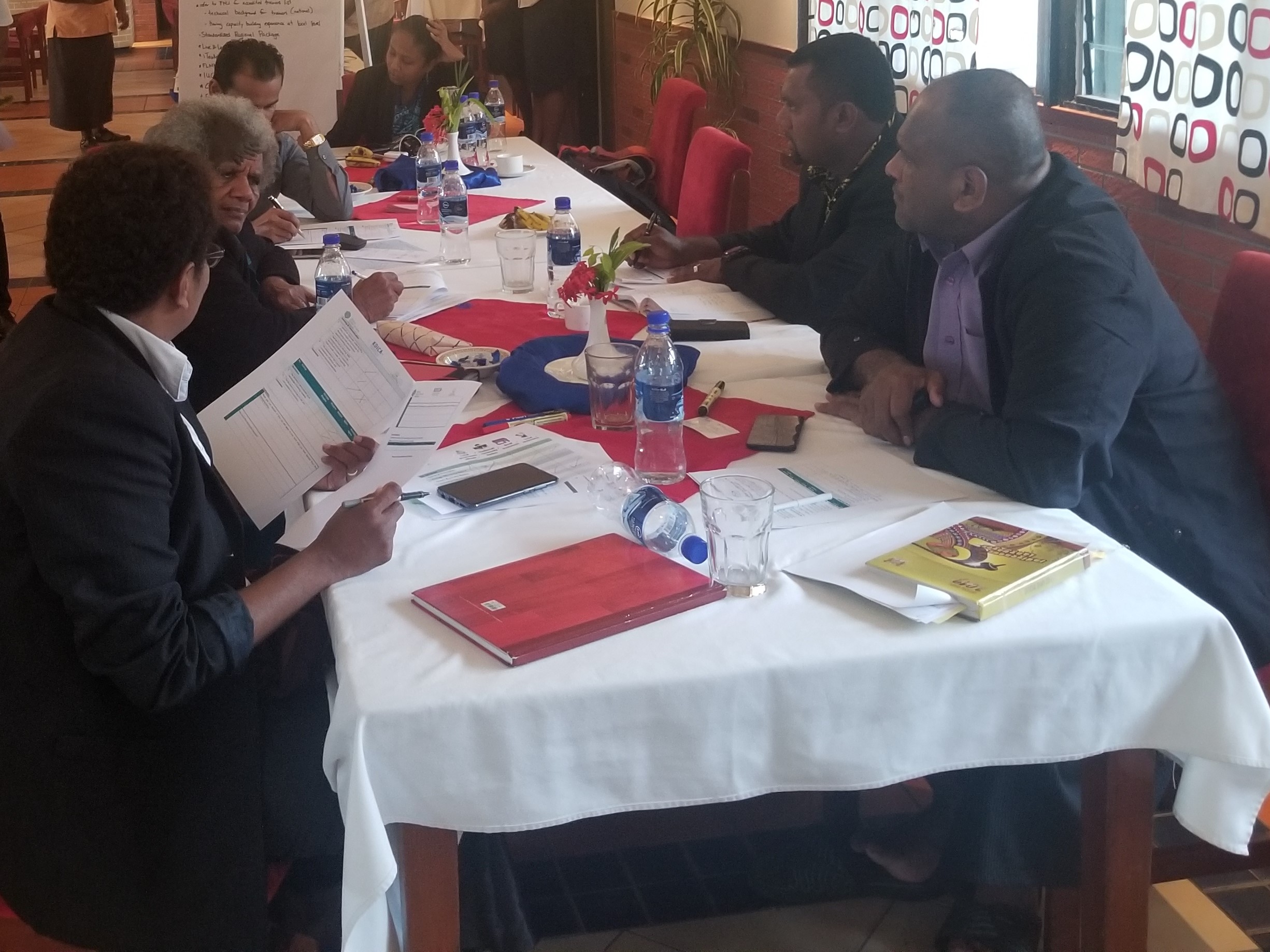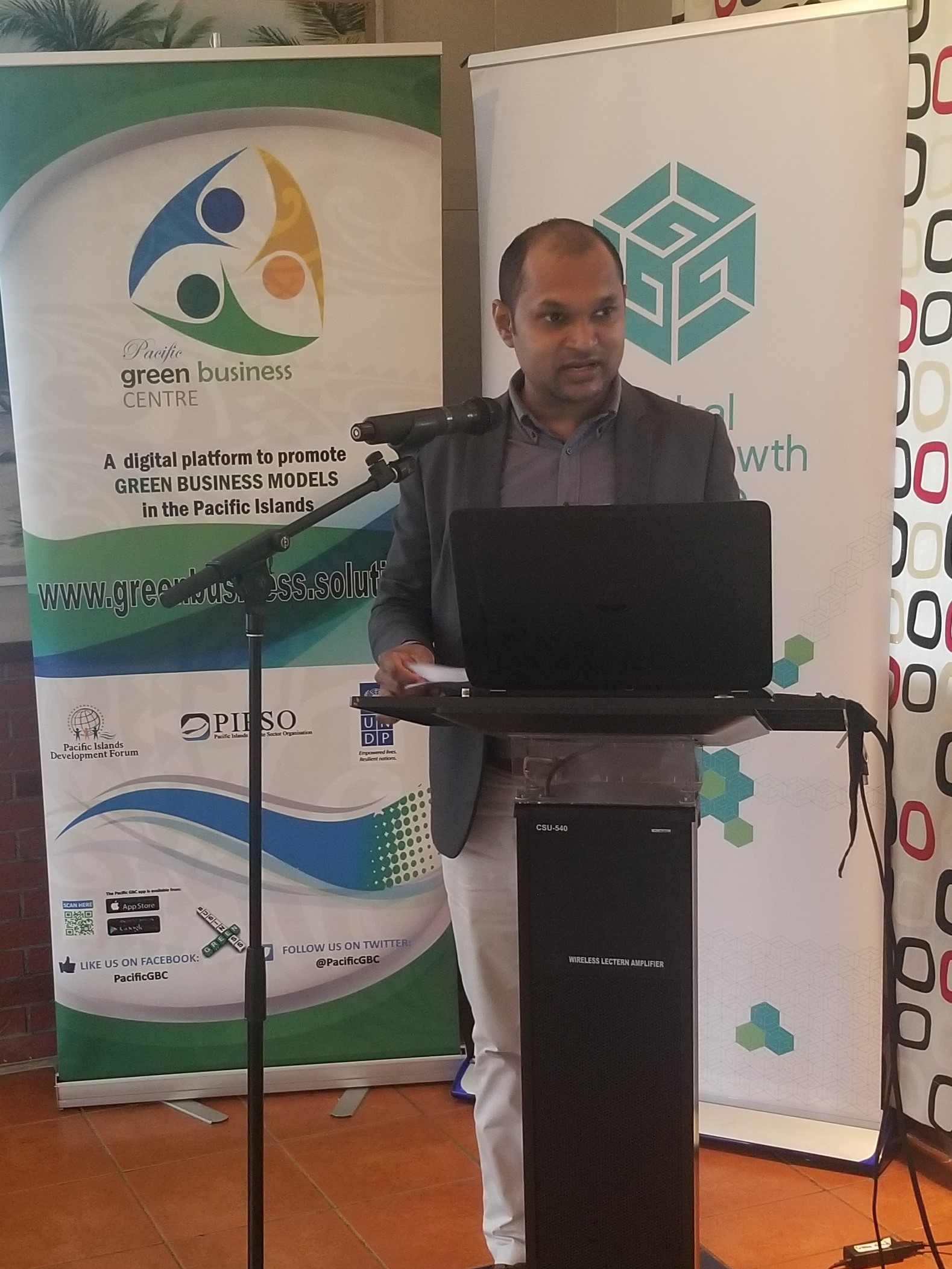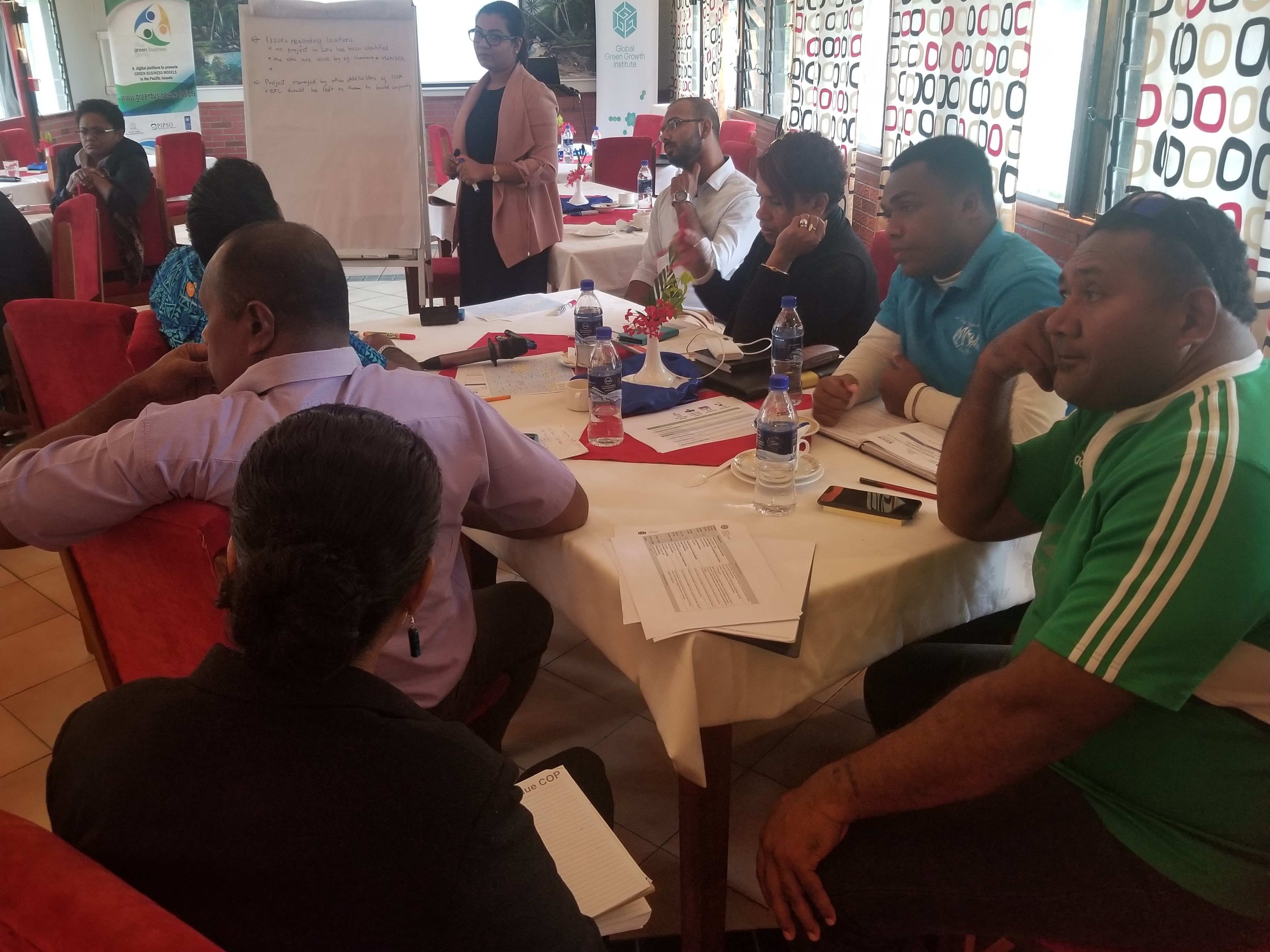 Suva, Fiji, July 24, 2019 – The Global Green Growth Institute (GGGI) in partnership with the Climate Change and International Cooperation Division (CCICD) of the Ministry of Economy, conducted a National Stakeholder Workshop on Capacity Building to Strengthen Sustainable Implementation of Renewable Energy Technologies for Rural Energy Access. The initiative is part of a 3-year regional project implemented in the Melanesian countries: Fiji, Vanuatu, Solomon Islands, and Papua New Guinea. The project is funded by the Republic of Korea through the Korea International Corporation Agency (KOICA) in partnership with GGGI and the Pacific Islands Development Forum (PIDF). In Fiji, the project implementation will be coordinated by GGGI in partnership with the CCICD.
Suva, Fiji, July 24, 2019 – The Global Green Growth Institute (GGGI) in partnership with the Climate Change and International Cooperation Division (CCICD) of the Ministry of Economy, conducted a National Stakeholder Workshop on Capacity Building to Strengthen Sustainable Implementation of Renewable Energy Technologies for Rural Energy Access. The initiative is part of a 3-year regional project implemented in the Melanesian countries: Fiji, Vanuatu, Solomon Islands, and Papua New Guinea. The project is funded by the Republic of Korea through the Korea International Corporation Agency (KOICA) in partnership with GGGI and the Pacific Islands Development Forum (PIDF). In Fiji, the project implementation will be coordinated by GGGI in partnership with the CCICD.

The project’s main objective is to strengthen informed and inclusive decision-making by resource owners and local government officials for the integration of Green Economy (GE) and Renewable Energy (RE) into Local Level Planning and to Strengthen Implementation of Renewable energy (RE) infrastructure for Rural Electrification. GGGI will work closely with local partners to develop various training modules within the project context to achieve this goal. In addition, local trainers will be engaged to deliver these capacity building workshops throughout the identified communities.
The purpose of this national workshop was to introduce the project, identify local delivery partners, and get feedback on the potential rural sites throughout the country where the capacity building workshops will be conducted, as well as getting feedback on the most viable means of delivering the workshop in rural areas.

In delivering his opening remarks, Mr. Nilesh Prakash highlighted that the Fijian Government in partnership with stakeholders “strives for an inclusive socio-economic development under its 20-Year National Development Plan and the United Nations Sustainable Development Goals under SDG 7 ensuring that all Fijians have access to affordable, reliable, sustainable and clean energy by 2021. Projects as these are aligned to current renewable energy projects in Fiji that contribute to Fiji’s mitigation efforts and actions in strengthening inclusive informed decision-making by resource owners and local government officials at the local level” he said. He also acknowledged the funding support from KOICA and regional technical support from GGGI and PIDF.
The workshop was attended by representatives of government and non-government agencies, which included the Department of Energy, Ministry of Employment, Ministry of Youth and Sports, Ministry of iTaukei Affairs, Fiji Higher Education Commission, iTaukei Affairs Board, Centre for Appropriate Technology Department, University of the South Pacific (TAFE), Fiji National University, Soqosoqo Vakamarama, and the Fiji Locally Managed Marine Areas Network.